A future of food sovereignty for Native American families and communities
Native American communities have a deep tradition of cultivating and sharing food that nourishes their people and culture. However, ongoing unfair systems have created barriers to food security. Despite these challenges, many Native and Tribal communities work hard to reclaim their food sovereignty and ensure access to healthy foods for future generations.

Challenges and solutions

Traditional Foodways
Native Americans have a long history of growing traditional foods to nourish their communities. Many communities are reclaiming these practices by growing their food through community gardens and agriculture projects, teaching traditional cooking skills across generations, and advocating for policies that support their rights to grow and access traditional foods.
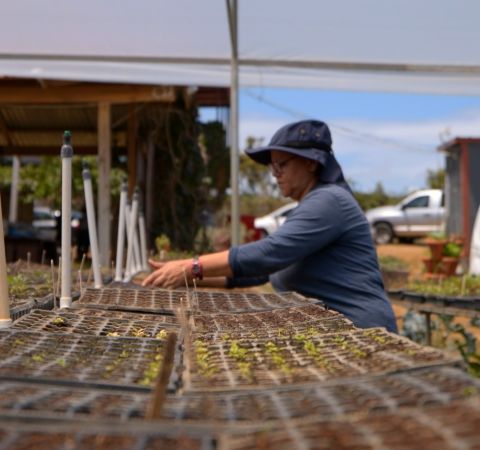
Food deserts
Many Native communities face limited access to supermarkets and healthy food options. To tackle food deserts, they're building community gardens, opening grocery stores and food banks, and advocating for food programs that offer culturally relevant and healthy food options.

Poverty
Feeding America recognizes the connection between poverty and food insecurity. We work alongside communities to address the root causes of poverty, such as limited access to stable employment and living wages.
Food sovereignty
Food sovereignty is not just about having enough to eat. It’s about communities choosing where their food comes from and how it’s grown. It values everyone involved in growing food, from farmers to chefs. It encourages local communities to grow food in ways that are good for people and the environment.
Food sovereignty is especially important for Native communities. Relying on outside food systems can lead to health problems and lessen food security. Many Native communities bring back traditional growing and sharing to become more self-sufficient and tackle the root causes of hunger.
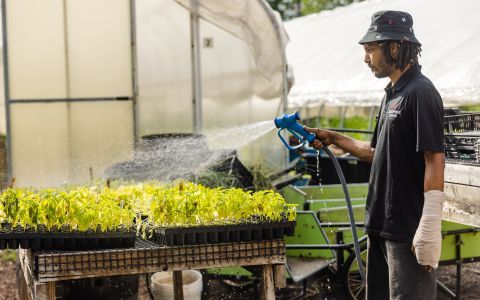
Addressing food insecurity in Native and Tribal communities
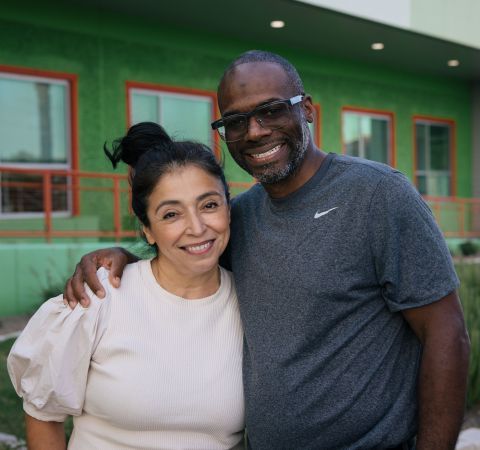
Partnership
Feeding America works alongside Native communities, learning from their expertise and partnering to ensure they have the resources they need to thrive.
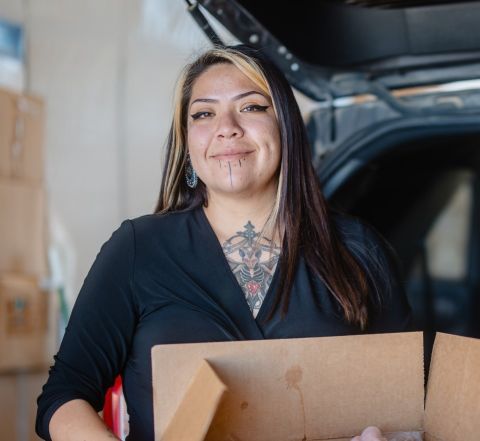
Native and Tribal-led solutions
The Feeding America network supports Native-led programs like the Natives Prepared program, which empowers communities to prepare for disasters and provide healthy food during recovery.

Grants and funding
Feeding America awards grants to network food banks serving communities most impacted by hunger, including many supporting Native communities. These funds help Native leaders to define their needs and create culturally appropriate solutions.

Advocacy
Feeding America advocates for policies that strengthen critical nutrition programs in the Farm Bill, directly addressing the priorities of Native communities.
How you can help
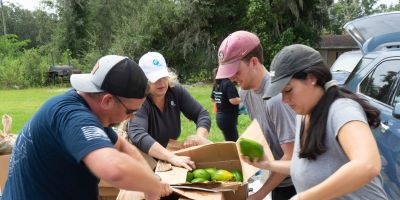
Volunteer
Help the Feeding America network distribute food by volunteering your time at a local food bank.

Learn
Educate yourself about Native American culture and the resilience of Native communities.

Advocate
Speak up against hunger in your community and urge your elected officials to support policies that help fight food insecurity.
